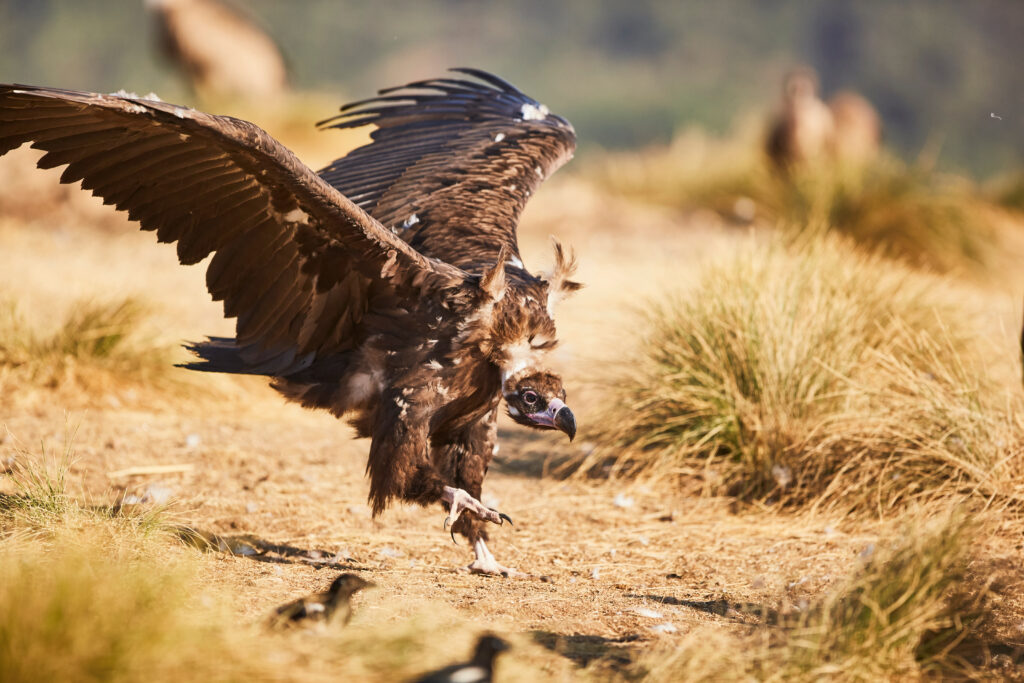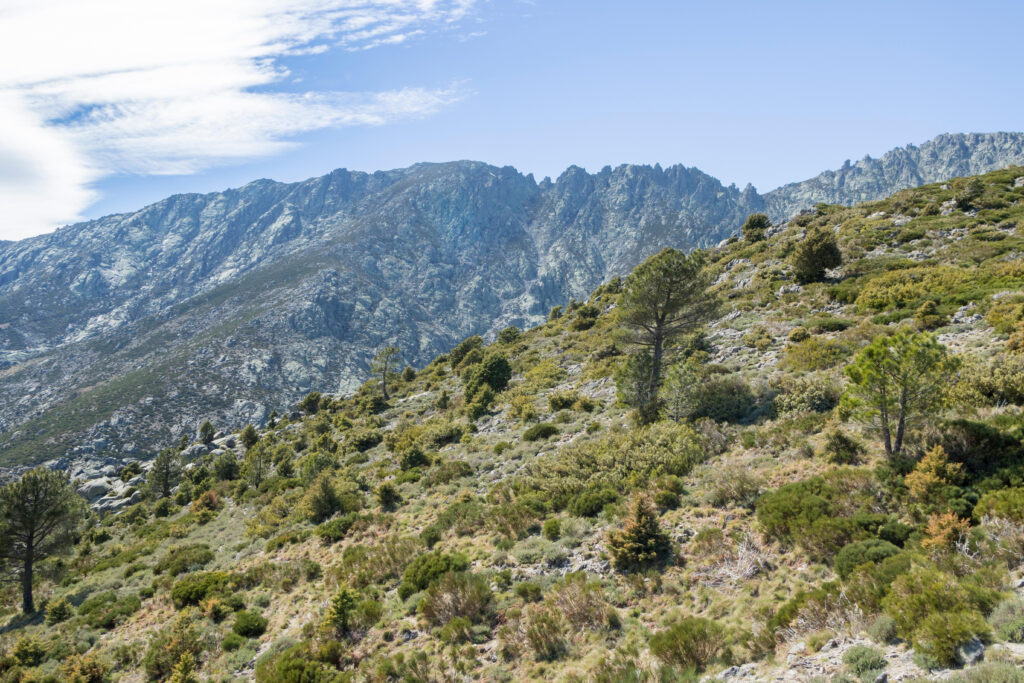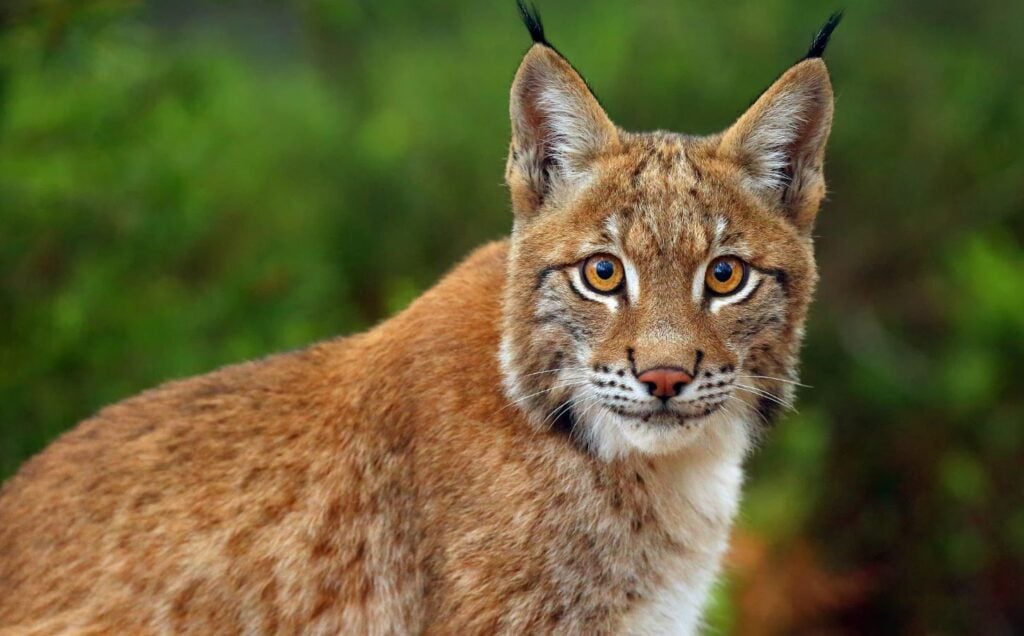Spain’s Iberian Highlands are playing host to a new rewilding project that will see lynx cats, wild horses, and black vultures all slowly reintroduced to the area.
The Iberian Highlands Rewilding Landscape project, led by nonprofit wilderness recovery organization Rewilding Europe, focuses on a protected area spanning 2.1 million acres to the east of Madrid.
Overlooked by the Iberian Chain mountains, the site features varied terrain, including forests, canyons, and farming land. The site is ideal for rewilding due to the small human population, which resulted from the mass exodus towards urban and industrial spaces in the middle of the 20th century.
Thanks to the relative lack of interference, some wild animals have already returned to the area of their own volition. These include wild boars and deer. Rewilding Europe’s latest project is the 10th of its kind. It seeks to gradually add more species back into the biodiversity mix.
The conservation project is Rewilding Europe’s first nature recovery endeavor within Spain. It follows similar efforts in Romania, Bulgaria, Sweden, and more. It has secured three years of funding, at around €900,000 per year, so far.
A rare conservation opportunity
Speaking about the Iberian Highlands site, Pablo Schapira, a team leader at Rewilding Europe, told the Guardian: “There are less than around two people per square kilometre, which makes it very special because you can see nature in a different way. It’s very rare to find these kinds of places in Europe.”
More than half of the 2.1 million-acre rewilding plot is protected land, under the EU’s Natura 2000 initiative. This means that it has been identified as a valuable natural habitat and potential home to vulnerable species that need to be safeguarded.

While some threatened species have already been reintroduced, the rewilding process involves a years-long schedule with small numbers of animals.
So far, a small herd of specially bred cattle has been released into the area. This was to make up the biodiversity shortfall of the once-extinct auroch cattle species. Meanwhile, 11 semi-wild horses were also introduced, in different regions, with reports that a foal had been born in summer. More horse releases are planned before the year is out.
Vulture reintroduction is being supported in two ways. Black vultures are being introduced, in batches of up to 15 birds, each year. They all carry GPS tagging systems to allow conservationists to gauge their movements. Also from the vulture family, bearded birds are being encouraged to return to the area with minimal interference through habitat restoration
Seemingly the most cautious release program will be that of the Iberian lynx. Due to begin in the next one to two years, just four animals are expected to be introduced. Having been close to extinction back in the early 2000s, with less than 100 in existence, there are more than 1,000 known to be living in Spain and Portugal. This is thanks to numerous EU Life conservation projects,
Why is rewilding good for the climate?
Rewilding is a technique used to rebuild ecosystems and recover from biodiversity loss within spaces that are not overpopulated by humans. Effectively, it allows natural processes to regain control and instigate ecological balance, after human interference.
In recent years, the importance of rewilding as a weapon in the fight against the climate crisis has been underscored due to its potential to amplify natural carbon sequestration.
Forests and other land-based ecosystems are currently thought to absorb around 7.6 billion metric tons of carbon dioxide a year. By increasing dense vegetation, this figure will rise, contributing to wider efforts to reduce harmful emissions reaching the Earth’s atmosphere.

Biodiversity, rewilding, and the climate emergency are also inextricably linked. The climate crisis is thought to be responsible for at least eight percent of species extinction. Rewilding allows critically endangered species to be protected, within suitable habitats, while they recoup their numbers.
This is essential for human survival, as well as planetary improvement. This is because our food, fuel, and even medications are derived from natural resources. These rely on effective biodiversity.
Rewilding Europe recognizes that employment opportunities in the protected Iberian regions it aims to support are dwindling. Those that remain – such as forestry, hunting, and mining – are often counterintuitive to conservation efforts. These can result not only the loss of established forests, but also Indigenous species such as the Iberian wolf, which has largely fled the area.
It is hoped that the reintroduction of various species to the Iberian Highlands will lead to nature tourism. This could be spurred on by visitors from nearby Valencia and Madrid, and could replace environmentally damaging employment opportunities.
“These cities have a lot of people who are looking for special places to see nature, so the tourist potential of this area is huge,” Schapira said.






